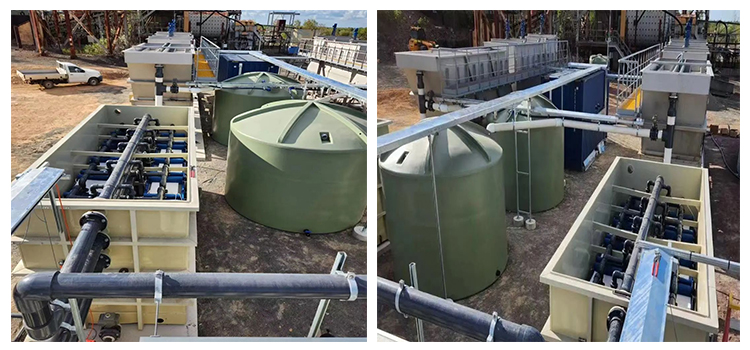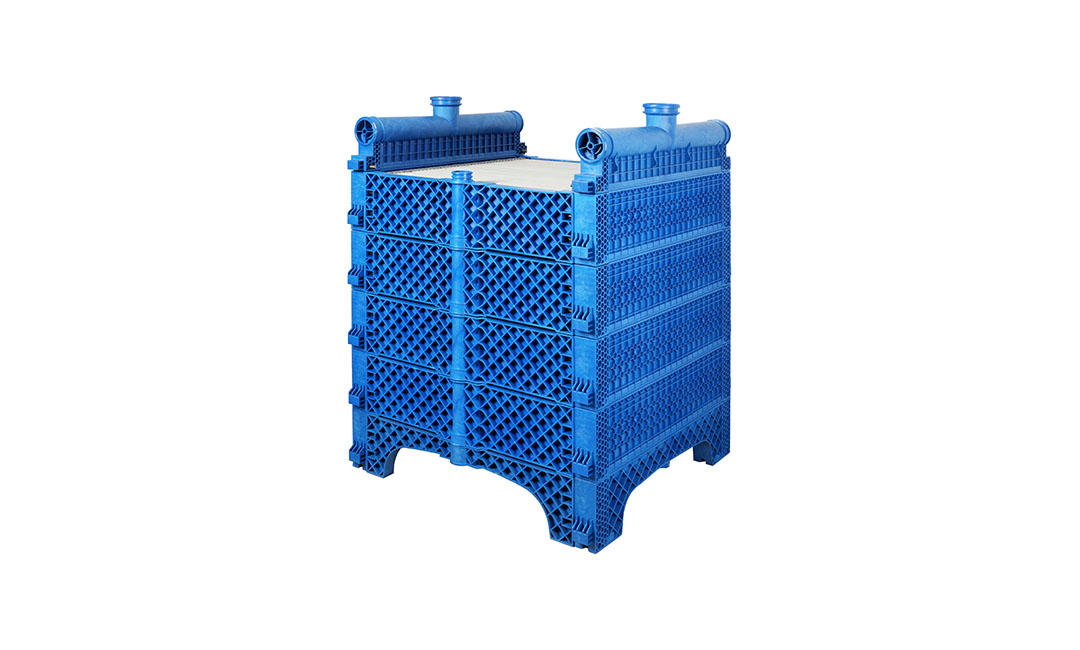Enhanced Oil-Water Separation Efficiency with SiC Membranes
Oil-water separation is a critical process in various industries, including wastewater treatment, oil and gas production, and petrochemical refining. Traditional methods of separating oil and water often involve the use of chemical agents or physical processes that can be costly, time-consuming, and environmentally harmful. In recent years, there has been a growing interest in the use of membrane technology for oil-water separation due to its efficiency, cost-effectiveness, and environmental friendliness.
One type of membrane that has shown great promise in oil-water separation systems is silicon carbide (SiC) membranes. SiC membranes are made from a combination of silicon and carbon atoms, which gives them unique properties that make them ideal for separating oil and water. These membranes have high mechanical strength, chemical resistance, and thermal stability, making them suitable for use in harsh operating conditions.

One of the key advantages of SiC membranes is their high permeability and selectivity. The porous structure of SiC membranes allows water molecules to pass through while blocking oil molecules, resulting in a high separation efficiency. This high permeability and selectivity make SiC membranes highly effective in removing oil from water streams, even at low concentrations.
Another advantage of SiC membranes is their durability and long lifespan. Unlike traditional polymeric membranes, which can degrade over time due to exposure to harsh chemicals or high temperatures, SiC membranes are highly resistant to corrosion and can withstand extreme operating conditions. This durability ensures that SiC membranes have a long service life, reducing the need for frequent replacements and maintenance.
In addition to their high separation efficiency and durability, SiC membranes are also environmentally friendly. The production of SiC membranes generates minimal waste and consumes less energy compared to other membrane materials. Furthermore, SiC membranes can be easily cleaned and reused, further reducing their environmental impact.
SiC membranes have a wide range of applications in oil-water separation systems. In the oil and gas industry, SiC membranes are used to treat produced water, which is a byproduct of oil and gas production that contains high concentrations of oil and other contaminants. By using SiC membranes, oil and gas companies can effectively remove oil from produced water, allowing for safe disposal or reuse of the treated water.
SiC membranes are also used in wastewater treatment plants to separate oil and other contaminants from wastewater streams. By incorporating SiC membranes into existing treatment systems, wastewater treatment plants can improve the efficiency of their processes and reduce the environmental impact of their operations.
Overall, SiC membranes offer a cost-effective, efficient, and environmentally friendly solution for oil-water separation systems. Their high permeability, selectivity, durability, and environmental friendliness make them an ideal choice for industries looking to improve their oil-water separation processes. As the demand for clean water and sustainable practices continues to grow, SiC membranes are poised to play a key role in meeting these challenges and ensuring a more sustainable future for industries around the world.
Long-Term Durability and Stability of SiC Membranes in Oil-Water Separation
Silicon carbide (SiC) membranes have gained significant attention in recent years for their potential applications in oil-water separation systems. These membranes offer several advantages over traditional polymeric membranes, including higher chemical and thermal stability, improved mechanical strength, and enhanced resistance to fouling. One key aspect that is crucial for the successful implementation of SiC membranes in oil-water separation systems is their long-term durability and stability.
One of the primary reasons why SiC membranes are preferred for oil-water separation applications is their exceptional durability. SiC is known for its high chemical resistance, which allows the membranes to withstand harsh operating conditions, such as exposure to corrosive chemicals and high temperatures. This durability ensures that the membranes maintain their structural integrity over extended periods of time, leading to consistent and reliable performance in oil-water separation processes.
In addition to their chemical resistance, SiC membranes also exhibit excellent mechanical strength. This property is essential for withstanding the high pressures that are often encountered in oil-water separation systems. The robust nature of SiC membranes ensures that they can withstand the rigors of operation without experiencing mechanical failure, thereby prolonging their lifespan and reducing the need for frequent maintenance or replacement.
Another key advantage of SiC membranes is their resistance to fouling. Fouling is a common issue in membrane-based separation processes, where contaminants accumulate on the membrane surface, leading to a decline in performance over time. SiC membranes have a smooth and hydrophilic surface that inhibits the adhesion of foulants, making them less prone to fouling compared to polymeric membranes. This anti-fouling property contributes to the long-term stability of SiC membranes in oil-water separation systems, ensuring consistent and efficient separation of oil and water streams.
The long-term durability and stability of SiC membranes in oil-water separation systems are further enhanced by their thermal stability. SiC membranes can withstand high temperatures without undergoing degradation, making them suitable for applications where elevated temperatures are required for efficient separation processes. This thermal stability ensures that the membranes can maintain their performance under challenging operating conditions, leading to reliable and continuous operation over an extended period of time.
Overall, the long-term durability and stability of SiC membranes make them an attractive choice for oil-water separation systems. Their exceptional chemical resistance, mechanical strength, resistance to fouling, and thermal stability contribute to their reliable performance and extended lifespan in demanding separation processes. By utilizing SiC membranes, industries can achieve efficient and cost-effective oil-water separation, while minimizing downtime and maintenance costs associated with membrane replacement.
In conclusion, the long-term durability and stability of SiC membranes make them a valuable asset in oil-water separation systems. Their robust nature, combined with their resistance to fouling and thermal stability, ensures consistent and reliable performance over extended periods of time. As the demand for efficient oil-water separation solutions continues to grow, SiC membranes are poised to play a key role in meeting the needs of industries seeking sustainable and effective separation technologies.
Cost-Effectiveness and Sustainability of SiC Membranes for Oil-Water Separation Systems
Oil-water separation is a critical process in various industries, including oil and gas, petrochemical, and wastewater treatment. Traditional methods of separating oil and water, such as gravity separation and chemical treatment, are often inefficient and environmentally harmful. In recent years, membrane technology has emerged as a promising alternative for oil-water separation due to its high efficiency and low environmental impact.
One type of membrane that has gained significant attention in the field of oil-water separation is silicon carbide (SiC) membranes. SiC membranes are known for their excellent chemical and thermal stability, high mechanical strength, and resistance to fouling. These unique properties make SiC membranes ideal for separating oil and water in harsh industrial environments.
One of the key advantages of using SiC membranes for oil-water separation is their cost-effectiveness. While the initial cost of SiC membranes may be higher than traditional separation methods, their long-term operational costs are significantly lower. SiC membranes have a longer lifespan than conventional membranes, reducing the need for frequent replacements and maintenance. This results in lower overall operating costs and increased efficiency in oil-water separation systems.
In addition to being cost-effective, SiC membranes are also more sustainable than traditional separation methods. SiC membranes are made from a renewable resource, silicon carbide, which is abundant in nature. Unlike other membrane materials, such as polymeric membranes, SiC membranes can be easily recycled and reused, reducing waste and environmental impact.
Furthermore, SiC membranes have a smaller carbon footprint compared to traditional separation methods. The production of SiC membranes requires less energy and resources, making them a more environmentally friendly option for oil-water separation systems. By using SiC membranes, industries can reduce their environmental impact and contribute to a more sustainable future.
Another advantage of SiC membranes in oil-water separation systems is their high efficiency. SiC membranes have a high permeability and selectivity, allowing them to effectively separate oil and water with minimal energy consumption. This results in higher oil recovery rates and cleaner water discharge, meeting regulatory standards and reducing environmental pollution.
Moreover, SiC membranes are resistant to fouling, a common issue in oil-water separation systems. Fouling occurs when contaminants accumulate on the membrane surface, reducing its efficiency and lifespan. SiC membranes have a smooth surface and high chemical resistance, preventing fouling and ensuring consistent performance over time.

Overall, the applications of SiC membranes in oil-water separation systems offer numerous benefits, including cost-effectiveness, sustainability, and high efficiency. By choosing SiC membranes for oil-water separation, industries can improve their operational efficiency, reduce costs, and minimize their environmental impact. As the demand for clean water and sustainable practices continues to grow, SiC membranes are poised to play a crucial role in the future of oil-water separation technology.

